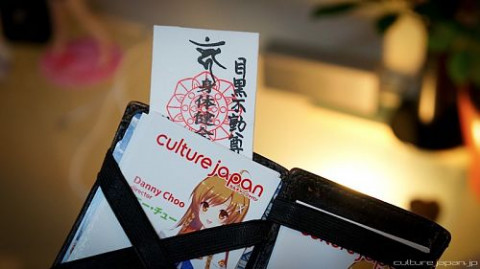Visiting Japan for business or working with Japanese colleagues?
Then put your best foot forward and make a great impression by understanding Japanese business culture!
Japanese culture can be very alien for some people.
So the more awareness you have around the way people prefer to do business, the better prepared you're going to be.
To help you, we'll be taking a glimpse into the unique Japanese business environment and exploring some tips for foreigners doing business with the Japanese.
DON'T MISS THE FREE SAMPLE OF OUR JAPAN CULTURE COURSE AT THE END!
8 Important Aspects of Japanese Business Culture
If we were to describe Japanese business culture using just a few words, we would opt for
- formal
- hierarchical
- harmonious and
- loyal.
Using these descriptors, let’s now condense Japanese business culture into 8 nutshell points.
1. Japanese business culture is strong on formality.
This means that there’s a certain way to do, (and not do), things in the workplace.
Take for example, how people greet one another. In Japanese culture, people greet each other in a particular order based on their position in the hierarchy. The most senior person is greeted first and the most junior person is greeted last. As a foreigner, if you greet the least important person first and leave the most senior person until last, you may well cause offence and cast yourself in a poor light.

The bow is all about showing respect, preserving hierarchies and maintaining social harmony - all fundamental values in Japanese culture.
Photo by Lyncconf found on Flickr (CC BY 2.0)
2. One of the most iconic expressions of Japanese formality is the bow which is strongly linked to hierarchy.
Essentially, if someone’s more senior than you, then your bow should be lower than theirs and held for longer. If they’re less senior than you, then your bow should be higher than theirs and held for a shorter period of time. And if the other person is of equal status? You’ve got it, the bow should be of an equitable angle and held for the same length of time.
Try and get this right without confusing the natural order. If for example, you go into a restaurant and return a bow lower and longer to the waiting staff, they will be obliged to repeat their bow to make it lower than yours and to hold it for longer than you did.
3. You’ll also see formality play out in the clothes Japanese businesspeople wear.
There is a way to dress, and most people stick to this by wearing simple black, grey or navy suits and avoiding colours that might otherwise make them stand out from the crowd. Japan places a great deal of value on the ‘group’, meaning that individualistic behaviours are not encouraged. If you walk through Tokyo during commuter rush hour, therefore, it’s unlikely you’ll see people wearing bright socks, coats or elaborate hats!
4. As we’ve mentioned, Japanese business culture is very hierarchical. Everyone has their place and knows their role.
Deference and authority are shown, and expected, where due. When you’re in Japan, therefore, you need to respect the order of things. As a crude example, if there’s a secretary in place with responsibility for printing documents then don’t go and start printing yourself as this may undermine the secretary and people may well question why you would do a job beneath your status. Demonstrating hierarchy in meetings and negotiations is also important.
5. We mentioned ‘harmony’ as a quality of Japanese business culture.
This feature is a product of the importance placed on ‘face’ in Japan. You’ll probably find it’s one of the most challenging cultural values that you come across when you’re in Japan. Why? Because Japanese people won’t always tell you what they think They may lead you to believe one thing, but actually mean something a little different.

Have you heard of nominication? It's a uniquely Japanese means of using aiding communication between colleagues through the use of plenty of alcohol! The result is usually a lot of sleepy people on public transport at the end of the night. Note how, even when drunk, shoes are not put on the seats - an important part of Japanese etiquette.
Photo by antjeverena on Flickr (CC BY-SA 2.0)
6. Face, or Mentsu in Japanese, is very important to understand.
Face is connected to dignity, honour and public standing. One can lose face, for example, by being blamed for something in front of others, and one can also gain face, for example, by being praised in front of others. Protecting your face and others’ face is crucial in Japanese culture as it helps maintain group harmony.
You’ll find, therefore, that people rarely show public displays of anger as this would cause both themselves and the recipient of their anger to lose face. It’s not to say it’s not expressed in a different way, but on the whole, people speak to each other calmly and respectfully to protect harmony within the workplace. Silence is also a big part of the communication style.
7. When you’re in Japan, therefore, don’t always take what you’re told at face value.
You may be told ‘yes’ to something when, in fact, the speaker means ‘no’. This isn’t intended to deceive you as the speaker will expect you to also consider some of their contextual and upspoken cues. Take the time therefore to look at the broader context, take note of body language and, if you’re really confused, then tell someone and ask them to be more direct with you.
8. When it comes to loyalty, the business culture in Japan is incredibly loyal.
This also transfers to suppliers and business relationships, so if you’ve managed to invest sufficient time in building trusting relationships with your counterparts, then you’re likely to be rewarded by their loyalty. It’s unlikely that they will want to change suppliers as easily as they might in the west.
You may also be aware of the ‘salary men’ in Japan. This concept is a clear expression of the value placed on loyalty in Japanese business culture. Salarymen are essentially white-collar workers, recruited into their role upon graduation. They then typically remain with their employer for life until they are of pensionable age.
How to Summarise Japanese Business Culture
- So, the business culture in Japan can be summarised as formal, harmonious, hierarchical and loyal.
- To make the best impression and to win the trust of your Japanese counterparts, then it’s essential that you really take the time to understand the culture.
- This will help you to avoid cultural faux pas which might otherwise have been easily avoided.
Take a Professional Course on Working with the Japanese
If you're working with Japanese peers, then give yourself a competitive edge by developing an essential understanding of Japanese business culture.
Trusted by multinationals the world over, our comprehensive online and eLearning Japanese cultural training course is a must-have for professionals.
Here's a look!
Main image by Danny Choo on Flickr (CC BY-SA 2.0)
